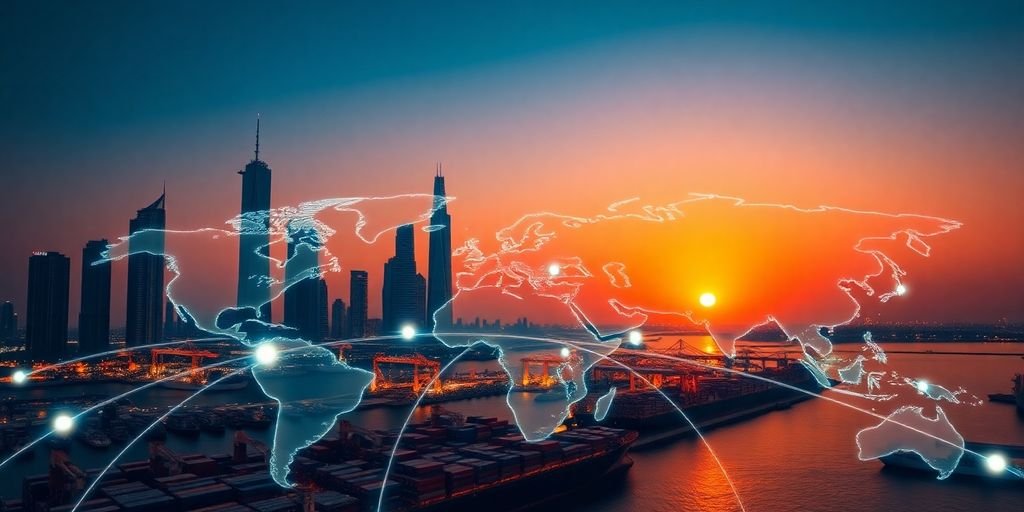The UAE’s strategic focus on economic diversification and global integration has propelled it to an influential position in international trade and investment, far exceeding its geographical size and population. This success, highlighted at the UAE Growth & Investment Forum, is attributed to a "business-first" approach, robust free zones, and a unique collaborative ecosystem between public and private sectors.
UAE’s Global Trade Prowess
Ismail Al Naqi, Director General of the Free Zones Authority of Ajman, emphasized the UAE’s remarkable achievements in global trade, citing its 11th global ranking in merchandise exports for 2023, with exports totaling $488 billion. This places the UAE ahead of many larger nations, a testament to its long-term strategy of integration, economic diversification, and optimism.
- The UAE’s proactive engagement in international partnerships, including Comprehensive Economic Partnership Agreements (CEPAs), is expected to further boost its trade figures.
- This success is a collective national effort, involving the public sector, private sector, citizens, and residents, all contributing to a shared economic vision.
A Stable and Strategic Global Partner
Al Naqi’s recent observations from China and Vietnam underscore the growing international interest in the UAE as a stable and strategic partner amidst global volatility. The nation’s inclusive, multicultural foundation, comprising over 200 nationalities united by optimism and purpose, is identified as a key factor in its global appeal.
The Business-First Approach and Free Zones
Al Naqi presented his "economic hypothesis" to explain the UAE’s systemic efficiency:
- Vertical Integration: Achieved through coordination between federal initiatives and local implementation.
- Horizontal Homogeneity: Evident in the unified objectives of public institutions and private businesses.
Key elements of this approach include:
- Global Market Opening: Through participation in BRICS, the World Trade Organization, and numerous CEPA agreements.
- Ease of Doing Business: Ensured by seamless coordination between free zones and mainland economic departments.
- Free Zones as Catalysts: Offering comprehensive, single-window services from licensing and residency to smart offices, embodying a "zero-bureaucracy approach" that provides a significant competitive edge.
National enablers like Etihad Credit Insurance and the Emirates Development Bank further empower businesses by facilitating financing and international expansion. This integrated ecosystem is designed to make the UAE the most agile and business-friendly destination globally, driven by the principle: "Whatever is good for business is good for the UAE."
Future Outlook
Despite significant progress, Al Naqi stressed that the UAE’s transformative journey is ongoing. The nation continues to build its future with strategy, speed, and a focus on global impact, indicating that the current achievements are just the beginning of its ambitious economic trajectory.
